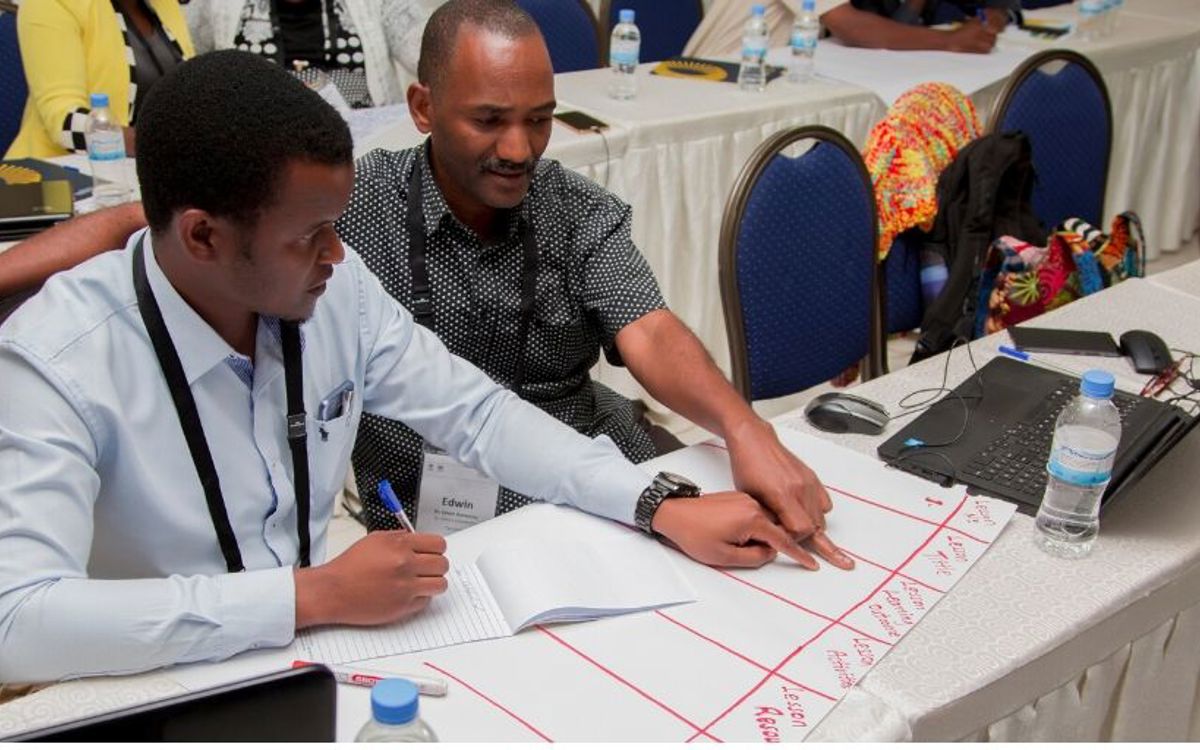

Daniella Hu
ACU Impact and Insight Officer
As the fast-paced evolution of the global coronavirus (COVID-19) pandemic forces campuses across the world to close, a growing number of universities are facing an unprecedented mass migration of students from lecture halls into virtual classrooms. While experts have hailed virtual learning as the new normal for universities, the latest global health emergency has also put online pedagogy in the spotlight as a vital component of universities’ contingency plans to safeguard higher education through periods of uncertainty.
The sudden surge of activity on virtual learning platforms poses various challenges for over-burdened IT departments, lecturers and learners alike. Taking stock of the current situation, what can universities do to better prepare themselves for the future?
In east Africa, the ACU is leading a pilot project on virtual and blended learning which seeks to provide an innovative solution. The Partnership for Enhanced and Blended Learning (PEBL) is taking a collaborative approach to address critical academic staff shortages in many east African universities by enabling lecturers to design and share quality assured, credit-bearing online courses via OER (Open Educational Resources) Africa. The PEBL network, which includes over two dozen universities across Kenya, Uganda, Rwanda, and Tanzania, has successfully rolled out an initial batch of six quality-assured modules. PEBL is part of the UK-Aid-funded Strategic Partnerships for Higher Education Innovation and Reform (SPHEIR) programme, which aims to improve the performance, governance and influence of higher education systems in low-income countries.
PEBL’s first batch of modules were designed to equip students with useful tools to advance in their studies and work, including Introduction to Entrepreneurship designed by Kenyatta University, IT Teaching Methods designed by the University of Zanzibar, and Biochemistry provided by the University of Rwanda. Of over 17,000 students across the region currently benefiting from the modules, many have reported that the flexibility and scope of the online courses enabled them to expand their minds, save on transportation costs and take on life responsibilities without compromising on studies.
On the institutional side, since 2018 PEBL has regularly convened its network for training sessions to build collective capacity in virtual learning delivery. Over 150 academics and lecturers have already been trained on core skills ranging from module navigation and technical troubleshooting to enhancing student experiences and outcomes. A recent training session co-hosted by the ACU in Nairobi saw many participating academics return home to train the rest of their faculties, suggesting the potential multiplier effects of capacity training.
‘PEBL has given us access to immense resources that are helping us overcome varied challenges in our shift towards blended learning,’ said Dr Robert Gateru, Vice-Chancellor of Riara University in Nairobi, Kenya. ‘Hitherto, our courses have been mainly face-to-face with very limited internal capacity to even think of transitioning to blended learning. The support structures in the project, as well as the collective learning across the partnership, have been invaluable to us. The capacity being built in us will tremendously help us transition to a campus that is more responsive to the learning needs of modern-day students.’
The ACU’s experience in supporting universities to transition into virtual learning is scalable within and beyond east Africa. ‘Universities have had to swiftly move to online teaching in response to the COVID-19 crisis. If virtual or blended learning becomes standard practice in the future, then innovative approaches will be needed,’ said Fiona Khandoker, PEBL Programme Manager. ‘Universities will need support with building capacity in online pedagogy and design in order to create learning content that is locally relevant.’
The Strategic Partnerships for Higher Education Innovation and Reform (SPHEIR) programme is funded by the UK Department for International Development (DFID) and is managed on behalf of DFID by a consortium led by the British Council that includes PwC and Universities UK International.
SPHEIR is designed to catalyse innovative partnerships in low-income countries to improve the performance, governance and influence of higher education systems and institutions. SPHEIR partnerships seek to transform the quality, relevance, access and affordability of higher education to achieve sustainable change in higher education systems. The SPHEIR fund supports a diverse portfolio of large-scale partnerships being implemented in Sub-Saharan Africa, Asia and the Middle East. Each partnership brings together universities, higher education institutions, private sector organisations, and NGOs to transform higher education through pedagogical and curricula reform, quality assurance, and facilitating access to education.
By nurturing innovation and scaling up effective solutions, SPHEIR is delivering strategic and transformative change in higher education systems, enabling them to meet labour market needs and generate the job-ready graduates needed to accelerate development, build inclusive societies and promote strong economic growth. For more information visit www.spheir.org.uk and follow #SPHEIR on social media.

